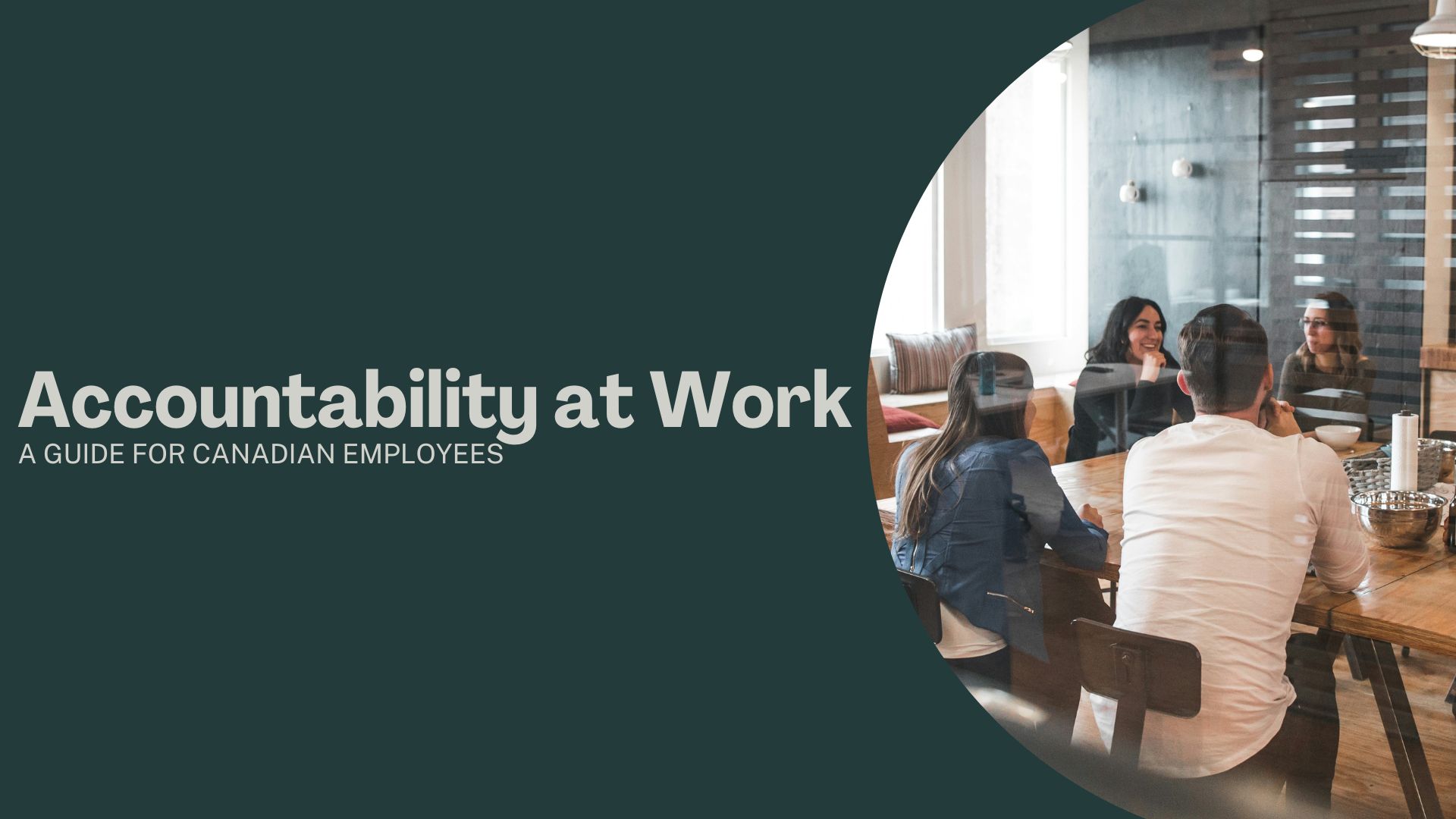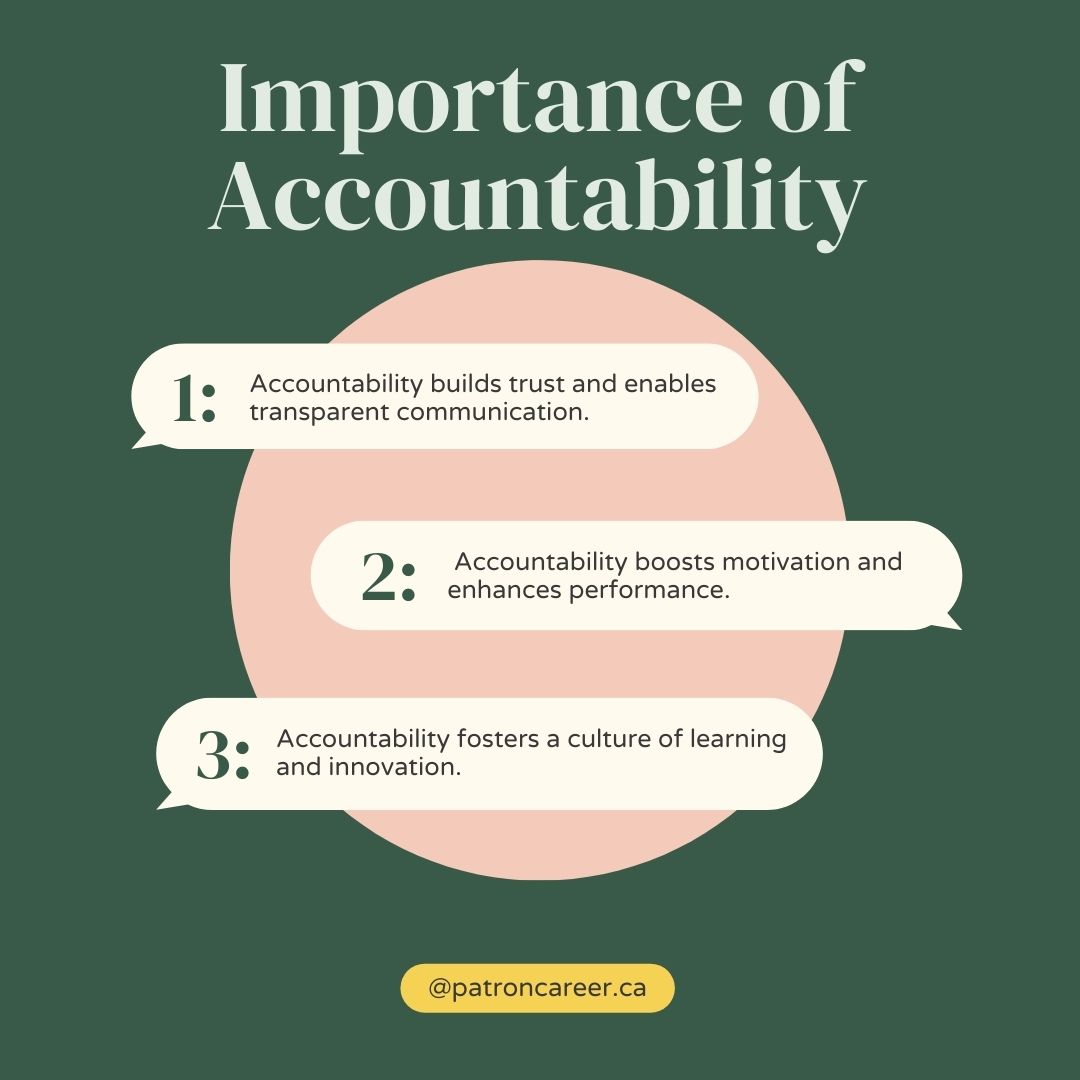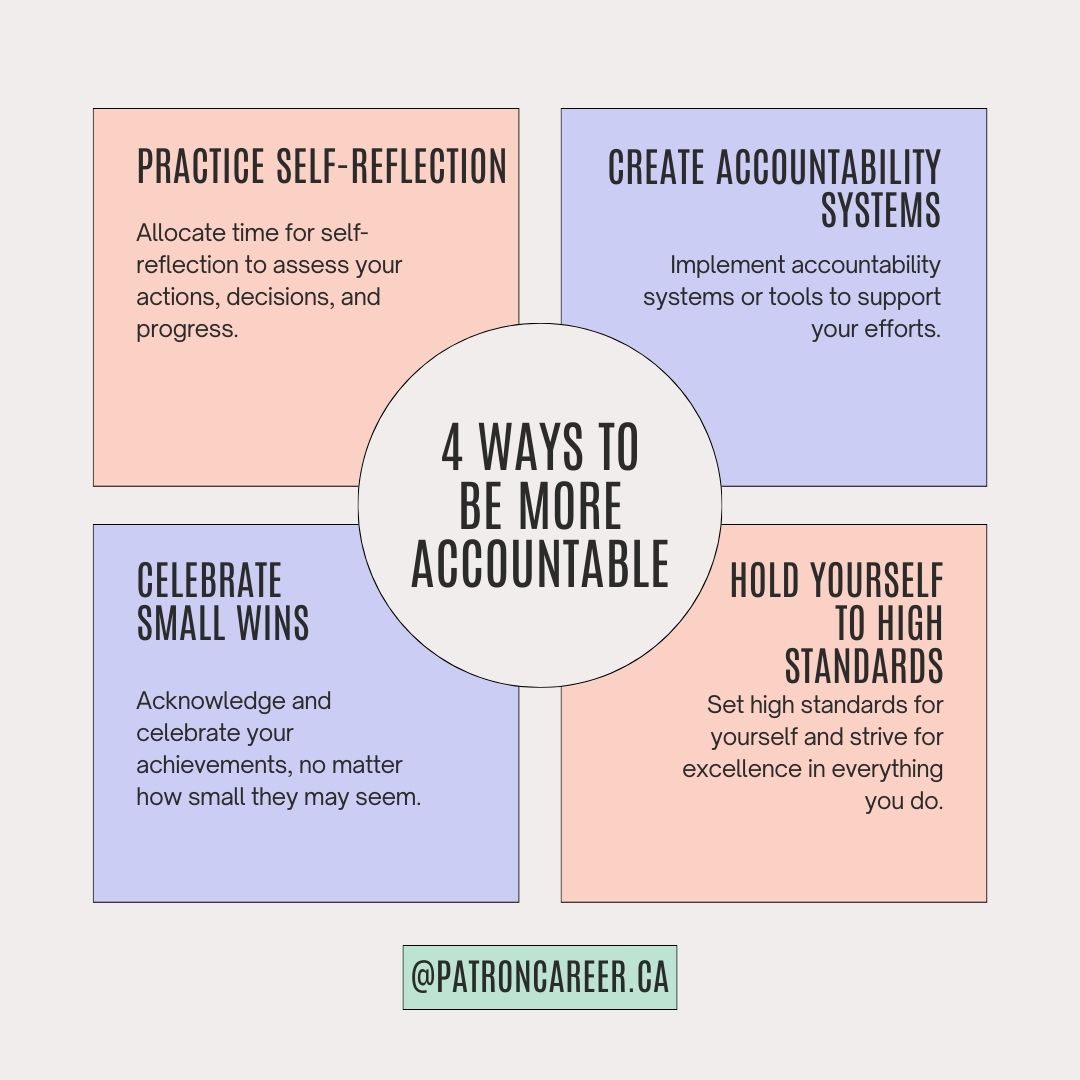
How to Nail your Phone Interview
18 April, 2024
Patron Career Staffing firmly believes in adopting a tailored approach to meet temporary and permanent recruitment needs. We safeguard the interest of our clients by finding such workers who are knowledgeable and reliable.
About UsNeed help? Make a Call
32 Dundas Street East Unit A, L5A1W2

Sitting in the bedlam of your office, you think you’re almost going to outshine in your project until a problematic situation knocks on your door, leaving you dejected and defeated. Not uncommon as it may sound, unforeseeable turns arise in the workplace. Be it the employer or the employee, they’re left with a choice to make- either take ownership of their actions or blame it on others.
The professional world calls for individuals who understand that accountability is a cornerstone for success. It is a definitive step that might be hard since research shows how induvial prefer to blame the consequences of their actions on others. We have it in perceives to avoid taking responsibility for our decisions and actions. But at the same time, holding oneself accountable is a valuable trait that is required in an organisation.
Gear up as we dive into understanding accountability and how it will aid in an employee’s growth along with practical steps to hold yourself accountable:
The Scenario of Accountability
Picture this: you have an upcoming project deadline, for which your team member's hard work is required for successful completion. In the organizational scenario, accountability means that each team member takes ownership of their assigned tasks, meets deadlines, communicates effectively, and understands their contribution to the outcome. Contrariwise, when accountability is a no-show, finger-pointing missed deadlines, and a lack of transparency can derail projects, damage morale, and hinder organizational progress.
Also read: Roadmap to Unlock Your Work Engagement: 10 Practical Tips for Canadian Employees
What Does Accountability Entail?
Understanding accountability must be a prioritized goal for employees and employers in the workplace. Self-accountability is a desired trait both in life and at the workplace. Self-accountability means the willingness to be responsible for one’s actions, decisions, and outcomes. It entails owning up for not only your successes but also your drawbacks, mistakes and failures.
In the workplace arena, accountability involves meeting your commitments and objectives and upholding ethical norms. From top management to lower management, it is a principle that requires external scrutiny as well as intrinsic zeal to excel.

How To Hold Yourself Accountable: 5 Tips
In part, the employees, who act as the most prized assets of an organization, are highly required to possess this trait to survive the longest in the professional world. Self-disciplined individuals are more inclined to portray accountability as both are closely related. Even for someone comfortable accusing others of their actions, practising accountability combined with composure is the need of the hour.
Here are five essential tips for employees wanting to hold themselves accountable at work:
1. Instate Clear Goals and Expectations
One needs to adopt a clear mindset to fully establish what they expect of themselves and how they are going to accomplish it. For this very purpose, employees must invest time in setting clear, achievable and well-defined goals as the first step towards accountability. The best manner to do so is by following the SMART goal plan. It stands for specific, measurable, achievable, realistic and time-bound. Structure your goal-setting plan using this framework and set yourself up for success.
We have a newsletter specifically dedicated towards performance goal setting, check it out here!
2. Own Your Failures and Learn from Them
An accountable person reflects his wrongdoings and is prudent enough to learn from them. However easy it may seem to lay the blame on subordinates or colleagues, try to embrace failures as an opportunity for learning and development. Set aside time to scoop out your strengths and weaknesses with integrity and sincerity. The key to holding oneself accountable is self-reflection. So, reflect on what went wrong and the factors responsible for it to help you devise strategies to prevent similar mistakes from repeating in the future. Remember, accountability isn't just about celebrating achievements; it's also about embracing setbacks as part of the learning process.
3. Communicate Proactively
Fostering open and honest communication is a vital step in holding oneself responsible for actions. Communication is a two-way process so listening to others is also equally important. In the workplace, employees should communicate transparently as it builds rapport and collaboration. During the difficult phases, where communication feels like herding cats, trust the process and meet your commitments. Whether it's a brief status update or a detailed progress report, regular and transparent communication demonstrates your commitment to accountability.

4. Seek Accountability Partners
Having an accountability buddy by your side because accountability doesn’t have to be a solo venture. When you share your goals with a reliable partner, your chances of accomplishing the goal increase as this person will regularly check in on your progress and report to you for any discrepancies or failures. Schedule regular check- ins or accountability meetings where you can review your progress, discuss challenges, and celebrate milestones together. Having someone to share your goals and aspirations with not only keeps you motivated but also provides valuable insights and perspective.
5. Evaluate and Adjust Regularly
Note that accountability is not achieved overnight, it’s an ongoing process. So, evaluating and adjusting accordingly is essential. From time to time, keep reviewing your performance against your goals. To maintain the momentum and be motivated, celebrate your wins and milestones. Get a clear picture of areas where you fell short or encountered impediments for you to strategies solutions effectively. By regularly evaluating your progress and making adjustments, you ensure that accountability remains a guiding principle in your personal and professional life.
Final Words
Accountability at work is a valued possession that wires you up for professional success and personal growth. By pursuing the above tips and strategies, you can master the art of accountability at work and fuel your credibility and fulfilment at work.
Follow us for more informative tips and tricks!
